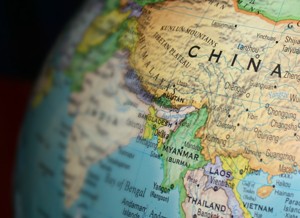Introduction
October was, to put it mildly, an eventful month. It was a month which saw the majority of markets on which we report down steeply, as fears of higher interest rates in the US combined with worries about the US/China trade war. There was, however, one market that went up sharply: Brazil elected a new president – a man who, I suspect, will feature prominently in future commentaries.
In the UK, the Prime Minister survived the latest round of calls for her head, and the Chancellor delivered his Budget a month earlier than everyone had expected.
The trade war between the US and China showed no sign of being settled any time soon and the mood in the US was not helped by the continuing decline of the Chinese currency or by suggestions that the Chinese had managed to use a tiny microchip to infiltrate both leading US companies and the country’s defence systems.
In Europe, Angela Merkel announced her intention to step down as leader of the Christian Democrats after yet more disappointing regional election results – and the populist government in Italy continued on its collision course with the sober-suited bankers of the EU over its proposed budget.
UK
Chancellor of the Exchequer Philip Hammond duly delivered his Budget speech on Monday 29th October and it was hard not to feel some sympathy for him. So many of his announcements – the ‘end of austerity’ and the extra cash for the NHS to name but two – had already been announced by Theresa May in previous speeches. Almost as if she wanted to publicly tie her Chancellor’s hands…
But then the Chancellor told some jokes, delivered – according to one sketch-writer – with ‘all the aplomb of a sedated undertaker’ and your sympathy evaporated. Nevertheless, the Budget generally received a positive reaction from the press as he increased the personal allowance to £12,500 and lifted the level at which people pay higher rate tax to £50,000: Conservative manifesto commitments delivered a year early. (Although the Scots will have to wait until the Scottish Budget in December to see what happens to their rates). ‘Phil-Good Factor,’ said the Mail – but the Guardian may have been closer to the mark with, ‘A Budget of tax cuts and spending to shore up May.’
The Budget also saw the proposed introduction of a Digital Services Tax – not, stressed the Chancellor – an online sales tax, but an attempt to get digital giants such as Amazon and Google “to pay their fair share.” The move has been widely condemned in the US and will not, in truth, raise that much money. It will be interesting to see how this one plays out…
The Chancellor did take steps to alleviate the gloom on the nation’s high streets, introducing business rate reliefs that, he said, would help 90% of small businesses. But there was more gloom as Patisserie Valerie came close to collapse and Boots produced final quarter results that could only be described as lacklustre. You do worry that disappointing results over Christmas might well be the final straw for some chains.
More optimistically, Rolls Royce created 200 more jobs and Spanish train maker TALGO shortlisted six sites in the UK for a new manufacturing capability that will create 1,000 new jobs.
More good news? Royal Bank of Scotland announced that it will pay a dividend – to astonished shareholders presumably – for the first time since 2008. However, bank branches continue to close, with 6,000 having disappeared since 2010.
In wider economic news, inflation was down to 2.4% in September and unemployment fell by 47,000 in the three months to August. Unemployment is now down to 4% and youth unemployment is at its lowest level in history, with wage growth in the UK now at its fastest for a decade, a point the Chancellor hammered home in his speech, confidently predicting “real wage growth” for each of the next five years.
Despite the Chancellor’s optimism, the FT-SE 100 index of leading shares ended the month down: given the global sell-off it could do little else. It was down 5% in the month (and is down 7% for the year as a whole) at 7,128. The pound also fell by 2% against the dollar, ending October at $1.2772.
Brexit
As Sherlock Holmes famously said in Silver Blaze, “That was the curious incident,” referring to the fact that the dog had done nothing in the night time.
You might well level the same charge against many Conservative backbenchers.
October had proceeded as all previous months in the Brexit negotiations had proceeded. Someone in Europe had expressed optimism; Theresa May had suggested a solution to the Irish border problem; then she suggested a longer transition deal and her Brexit-supporting backbenchers publicly railed against her.
“Chuck Chequers,” stormed Boris Johnson at the Conservative Conference and brought the house down. Theresa May made her speech and received a standing ovation – but there were certainly empty seats.
And so, in the final week of October the PM was summoned to a meeting of the 1922 Committee, face to face with her fiercest critics. This was surely it? ‘Bring your own noose’ one intemperate backbencher supposedly said.
No. The dog did precisely nothing in the night. Theresa May left the meeting not bloodied and bowed, but with her position strengthened. And so the caravan moves on to November’s meetings with the EU. Brexit Secretary Dominic Raab is “optimistic.” The Irish Government declares it is “the moment of truth” and gives the UK a week to sort out a deal. An unnamed EU official mutters that a deal is “impossible before December.”
Plus ça change plus c’est la même chose, as the French say.
Europe
Angela Merkel has been Chancellor of Germany and de facto leader of Europe for as far back as our commentaries go. All that may be about to change.
In the middle of the month, the Christian Socialists – Merkel’s allies in the ‘grand coalition’ – lost their long-held majority in Bavaria as voters swung sharply to the Greens and the far-right AfD.
That was clearly a warning shot and when the coalition suffered losses in Hesse at the end of the month – again to the Greens and AfD – Merkel announced her decision to stand down as Chair of the Christian Democrats, a position she has held since 2000. She will – at the moment – serve out her term as Chancellor, but she is clearly a weakened figure and, as the Spectator said, ‘Europe’s throne is empty.’
The populist leaders in Italy may not be interested in taking Merkel’s throne: they are certainly interested in a protracted battle with the EU over their proposed budget. The Italian economy is now no bigger than it was in 2008 and grew by just 0.1% in the third quarter of the year. Consequently, Deputy Prime Ministers Matteo Salvini and Luigi Di Maio want an expansionist budget – borrowing money to kick start the Italian economy.
The EU has effectively rejected the budget, believing that the country cannot add more borrowing to already high levels of debt. “This is the first Italian budget that the EU doesn’t like,” wrote Di Maio on Facebook. “No surprise. This is the first Italian budget written in Rome and not Brussels.”
This is another dispute where both sides hold deeply entrenched positions – and ultimately it could prove as serious for the EU as Brexit.
In rather less exciting news, Audi was fined €800m (approximately £700m) by German prosecutors over the never-ending diesel emissions scandal.
…And, inevitably, the worries about a global trade war impacted on the region’s two leading stock markets. Both the French and German stock markets were down by 7%, to 5,093 and 11,448 respectively. Despite the relentless trade surplus the country generates each month, the German DAX index is now down by 11% for the year-to-date.
US
The month in the US got off to a positive start. President Trump concluded new trade deals with Mexico and Canada, hailing them as “the most important ever done” by the US. The US jobless rate tumbled to 3.7% in September, the lowest for 49 years, despite the economy only adding 134,000 new jobs in the month, below most analysts’ forecasts.
Sadly, Florida was then hit by Hurricane Michael – causing ‘unimaginable destruction’ – and on the same day the Dow Jones index fell sharply, dragging markets in the Far East and across Europe down with it.
In company news, it was once again the old economy vs. the new. Netflix soared on record subscriber numbers and Amazon racked up profits of $2.9bn (£2.3bn) for the third quarter of the year, well ahead of expectations of $1.9bn (£1.5bn). The old economy? Sears, the department store that once dominated American shopping malls filed for bankruptcy.
The President continued his war of words with the Federal Reserve Bank, labelling it ‘out of control,’ but the Fed is at least in charge of the world’s ‘most competitive economy.’ The World Economic Forum awarded the US that title for the first time in a decade.
The month ended with the news that the US economy had grown faster than expected in the third quarter of the year at an annualised rate of 3.5% – down from the 4.2% recorded in the second quarter but still better than the expected 3.3%. And Tesla finally made a profit, reversing previous losses and making $312m (£245m) in the third quarter.
Inevitably though, the Dow Jones index was down in the month, as it fell 5% to 25,116. It remains, though, up by 2% for the year as a whole.
Far East
There was really only one story in the Far East during October, and that was the precipitous fall in the region’s stock markets. As we have seen, it was an extremely volatile month on Wall Street and, as the US fell, so did the Far East as the worries about the trade war between China and the US intensified.
South Korea led the way – if that is the right phrase – with a fall of 13% in the month to 2,030. Hong Kong was down by 10% to 24,980 while the Japanese market fell 9% to 21,896. China itself was ‘only’ down 8% as the Shanghai Composite index ended the month at 2,603 – down by 21% for the year as a whole.
Another worrying trend is that the Chinese yuan is continuing to fall against the dollar – another potential flashpoint in the trade war, with Donald Trump long having maintained that China keeps its currency artificially low in order to boost its exports. The yuan is currently close to the 7 mark against the US dollar, a level it has only touched once since the 2008 financial crisis.
Chinese growth also missed its target for the third quarter of the year, coming in at 6.5%, below analysts’ expectations of 6.6% and down on the 6.7% recorded in the previous quarter. The central bank duly took steps to boost liquidity in the economy as the trade war continued, but this came too late to avert an 11.6% drop in sales of new cars in September, the third straight month of decline.
There was better news in Japan where Samsung forecast record profits for the third quarter, and Honda invested $2.75bn (£2.16bn) in General Motors’ self-driving cars division. Meanwhile, Prime Minister Shinzo Abe invited the UK to join the Trans-Pacific Trade Partnership once Brexit is completed. Hmmm… we may need to reach an agreement with the EU before that can happen…
Emerging Markets
The big story in Emerging Markets was the victory for Jair Bolsonaro in the Brazilian presidential election. Dubbed the ‘Trump of the Tropics’ for his confrontational and often controversial views, Bolsonaro won with 55% of the vote.
He is a 63 year old former military officer and will assume office on 1st January 2019, serving a four year term and replacing current president Michel Temer. Bolsonaro has promised to stamp out corruption and be tough on crime. He is unashamedly right-wing in both social and economic policies: critics worry that his close ties to the agribusiness lobby may lead to yet more deforestation in Brazil, with its consequent impact on the world’s climate.
On the stock markets, both the Indian and Russian stock markets fell in this most turbulent of months. Both were down by 5% to 34,442 and 2,353 respectively. The Brazilian market went in completely the opposite direction, rising 10% on the election of a president who is expected to be favourable to business. It closed October at 87,424.
And finally
October got off to a bad start for Ben and Jackee Belnap of Utah. The couple had carefully saved $1,000 (around £780) which was to pay back Ben’s parents, who’d kindly bought them season tickets for the University of Utah’s American football games. Sadly, the money went missing. Jackee eventually found it in the trash – but the cash had been shredded. Well, what do you expect when you have a two year old son? Jackee told the local TV station that she “often got Leo to help with the shredding.”
And now the little fella had wanted to help mummy…
Never mind. The Utah Utes are having a good season and recently beat Arizona 42-10. So some small consolation for Ben and Jackee…
Closer to home, MPs on the Education Select Committee interviewed a four foot robot called Pepper, as they sought to learn about AI and robotics. Unfortunately, reports indicated that the MPs struggled to understand what Pepper was saying, as he gave short, truthful and easy-to-understand answers to all the questions.
Finally, we must report on a crisis in the English wine industry where – thanks to the record breaking summer – there has been a bumper harvest. That’s the good news: the bad news is that the winemakers do not have enough storage space to cope with what’s been dubbed, ‘the vintage of a lifetime.’
Sources
http://cs.mail-first.co.uk/wp-content/uploads/2018/11/November-Sources-.pdf

